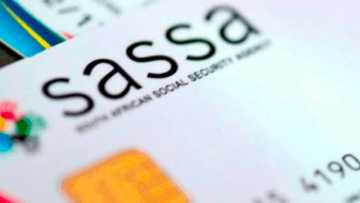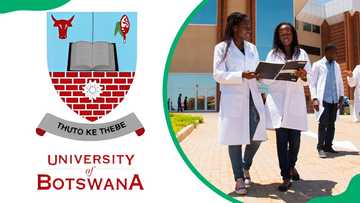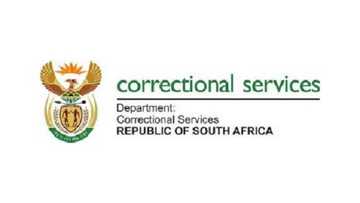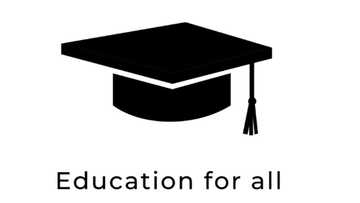National Senior Certificate: Everything you need to know about the examinations
The National Senior Certificate, commonly known as NSC, is a high school diploma. It is an official school-leaving certificate in South Africa. This certificate is also known as the matriculation or matric certificate for senior people. It is a requirement for people who wish to pursue higher education in the country. Learn below all you need to know about the certificate.

Source: UGC
TABLE OF CONTENTS
- Key takeaways
- National Senior Certificate: Everything you need to know
- What is the importance of obtaining the National Senior Certificate?
- NSC bachelor pass requirements
- Eligibility for NSC
- Minimum requirements to obtain a National Senior Certificate
- How to obtain a National Senior Certificate online?
- How to check matric results with ID number
- How to check your certificate online
- How to check your NSC certificate number online
- Disadvantages of the National Senior Certificate
- The difference between a Senior Certificate and a National Senior Certificate
- Registration for the Senior Certificate Examination
- Who qualifies to sit the Senior Certificate examination?
- Subjects offered for a Senior Certificate
- Senior Certificate pass requirements
- What does NSC mean?
- What are the minimum requirements for a National Senior Certificate?
- What is the pass mark in South Africa?
- What are the alternatives for Matric College - Pretoria?
- Where can you get matric test papers?
Key takeaways
- In South Africa, grade 12 is the matriculation grade.
- Students in grade 12 study at least seven subjects.
- Thereafter, they have the option of either taking the National Senior Certificate (NSC) or the National Certificate Vocational (NCV).
National Senior Certificate: Everything you need to know
Not long ago, the Department of Basic Education, through the Minister of Education, made a couple of changes in the qualifications of the National Senior Certificate applicants.
One major change was the introduction of the Amended Senior Certificate in 2015 to allow adult learners to write the exam based on the Curriculum and Assessment Policy Statement (CAPS) subjects.
This policy replaced the previous Senior Certificate, which was based on the old National Curriculum Statement (NCS) subjects, for learners who did not meet the requirements to write the NSC.
What is the importance of obtaining the National Senior Certificate?
It is important to assess the importance of getting a National Senior Certificate (NSC) or Matric certificate in South Africa before pursuing it. Here are the reasons for obtaining the certificate.
- It demonstrates that a person has completed their high school education.
- It shows someone is academically prepared for college or university-level education.
- The NSC certificate enhances the individual's employability as it is a requirement by most employers in South Africa, especially for entry-level positions and career advancement.
The NSC certificate ensures that all students across the country are assessed on the same standards. It ensures fairness and consistency in the evaluation of students' academic abilities in South Africa.
Besides, the certificate holds educational institutions accountable for the quality of their teaching and the academic performance of their students.
NSC bachelor pass requirements
Many people who sit the NSC do so to meet the criteria for joining institutions of higher learning. It is important to note that various universities in South Africa have specific minimum entry requirements for undergraduate degrees that vary depending on the course.
Even so, the minimum admission requirement for a Bachelor's degree is an NSC with a minimum of 30% in the language of learning and teaching of the higher education institution, as certified by Umalusi.
The candidate must also have an achievement rating of 4 (Adequate Achievement, 50% - 59%) or better in four (4) recognised 20-credit subjects. Again, note that the institution and programme needs may require additional combinations of recognised NSC subjects.

Source: UGC
Eligibility for NSC
National Senior Certificate examinations are normally conducted from October to December of each year. All subjects to be written, including those from approved assessment bodies, must be registered. The eligibility criteria are explored below.
- Current Grade 12 learners
- Anyone who wants to improve on their previous NSC results and who is still an NSC candidate may register as a part-time candidate for the exams.
Minimum requirements to obtain a National Senior Certificate
The minimum NSC pass requirements are listed below.
- The candidate must achieve 40% in three subjects, one of which is an official language at Home Language level, and 30% in three other subjects as stipulated in the policy.
- The candidate must provide full evidence of the SBA component in the subjects offered.
How to obtain a National Senior Certificate online?
You cannot directly download a National Senior Certificate PDF through the Department of Education's e-Matric e-Re-Issue service or eservices.gov.za, or Umalusi's certificate replacement service, especially if your certificate is lost or damaged.
You may also be able to view the matric certificate online and download your exam results for a specific year from the relevant provincial education department's website, such as the Western Cape Government website.
How to check matric results with ID number
To check your South African matric results with your ID number, you can use the official Department of Basic Education's website, the MatricsMate App, send an SMS to 35658, or use the 12035658# USSD service, all of which require your examination number in addition to your ID number. You can also visit your school or examination center to collect your official results.
How to check your certificate online
To check your NSC certificate:
- Visit the Department of Basic Education's website.
- Click on the examination results section to enter your examination number to view your results.
- For lost certificates, you can apply for a re-issue on the e-services portal (eservices.gov.za) and track your application with the reference number.
- You can also contact your provincial education department or the examination centre where you wrote your exams for assistance if your results don't appear online.

Source: UGC
How to check your NSC certificate number online
To check your NSC certificate number:
- Go to the South African government's SAQA VeriSearch portal at the South African Qualifications Authority (SAQA) website.
- Provide the necessary personal information, such as your ID number, to access the National Learners' Records Database (NLRD).
- The portal will provide a full record of your qualifications as held by the NLRD.
If you cannot find your certificate number online, visit your nearest Department of Basic Education (DBE) or Provincial Education Department (PED) office.
You will need an affidavit explaining the status of your certificate and a certified copy of your ID. If your certificate is lost or damaged, the DBE/PED office can assist you in obtaining a replacement.
Disadvantages of the National Senior Certificate
While the NSC or matric certificate comes with many advantages, it has limitations too.
- It does not fully capture the unique strengths and abilities of individual students because it is based on a standardised assessment system.
- The certificate tends to create significant stress and pressure for students. Some end up struggling with mental health issues.
- The NSC has a rigid structure that may not allow for individualised learning approaches or alternative assessment methods that better suit some students.
The difference between a Senior Certificate and a National Senior Certificate
The National Senior Certificate (NSC) is the standard high school matric you receive when passing Grade 12 via the CAPS curriculum. On the other hand, the Senior Certificate, also known as the Amended Senior Certificate (ASC), is the equivalent of the NSC for adult learners.
South Africa no longer has the Senior Certificate; it was replaced by the National Senior Certificate (NSC) in 2008 for school-going learners, but continues to exist as the Amended Senior Certificate (ASC).
While the original Senior Certificate (SC) was phased out, the Amended Senior Certificate remains a distinct qualification for adults 21 years and older.

Source: UGC
Registration for the Senior Certificate Examination
The Department of Education has made it easier for interested parties to apply for the exam by doing it online. Alternatively, one can do so by visiting the education district offices.
Learners with incomplete Amended Senior Certificate credits and adult learners of 21 years and older can apply for the examination.
Who qualifies to sit the Senior Certificate examination?
As of date, these are the stipulated requirements that allow one to sit the examination. Anyone who meets any of the requirements given below can proceed to register for the National Senior Certificate examination as scheduled by the Department of Education.
- Adult learners must be at least 21 years old to sit the NSC examinations.
- They must have a General Education and Training Certificate (GETC) or a Grade 9 school report (or the old standard seven). They must have passed Grade 9 or Standard 7. Alternatively, they must have a recognised equivalent qualification obtained at NQF Level, which requires two official languages.
- Adult learners who are 21 years and older with an incomplete Senior Certificate qualification can sit the exams.
- Adult learners who are 21 years and older with an incomplete National Senior Certificate are eligible for the exams.
- Adult candidates who are 21 years and older with an incomplete NSC may choose to complete the NSC as part-time candidates or convert to the Senior Certificate.
- Adult candidates who have already obtained a qualification but wish to improve their results/status can apply for the exams.
- In exceptional cases, out-of-school youth aged between 18 and 21 years who could not complete their school education due to circumstances beyond their control can sit the exams. Their details must be verified by the Head of Department in their Provincial Education Department.
Subjects offered for a Senior Certificate
The subjects listed below are offered as part of the Amended Senior Certificate. Each candidate must sit for six subjects to qualify for this certificate.
Note that the Amended Senior Certificate examinations are written in May/June of each year. Examinations are administered at designated examination centres determined by the Provincial Education Department.
Official languages at home and first additional level
The official language subjects offered at home and first additional levels are listed below.
Subject | Number |
Afrikaans Home language | 13300019 |
Afrikaans First Additional Language | 13310029 |
English Home Language | 13300039 |
English First Additional Language | 13310049 |
IsiNdebele Home Language | 13300059 |
IsiNdebele First Additional Language | 13310069 |
IsiXhosa Home Language | 13300079 |
IsiXhosa First Additional Language | 13310090 |
IsiZulu Home Language | 13300099 |
IsiZulu First Additional Language | 13310109 |
Sepedi Home Language | 13300119 |
Sepedi First Additional Language | 13310129 |
Sesotho Home Language | 13300139 |
Sesotho First Additional Language | 13310149 |
Setswana Home Language | 13300159 |
Setswana First Additional Language | 13310169 |
SiSwati Home Language | 13300179 |
SiSwati First Additional Language | 13310189 |
Tshivenda Home Language | 13300199 |
Tshivenda First Additional Language | 13310209 |
Xitsonga Home Language | 13300219 |
Xitsonga First Additional Language | 13310229 |
Agriculture, Business, Commerce, and Management Studies
Below are the Agriculture, Business, Commerce, and Management Studies offered.
Subject | Number |
Agricultural Sciences | 10320239 |
Accounting | 12320249 |
Business Studies | 12320259 |
Economics | 12320269 |
Physical, Mathematical, Computer, and Life Sciences
Below are the Physical, Mathematical, Computer, and Life Sciences subjects offered.
Subject | Number |
Computer Applications Technology | 19320309 |
Information Technology | 19320319 |
Life Sciences | 19320329 |
Mathematical Literacy | 19320339 |
Mathematics | 19320349 |
Physical Sciences | 19320359 |
Senior Certificate pass requirements
The Amended Senior Certificate is issued to adult candidates who satisfy the requirements listed below.
- The candidate must pass three subjects at 40%, one of which must be an official language at Home Language level.
- The candidate must pass two subjects at 30%, one of which must be an official language at First Additional or Home Language level.
- The candidate must obtain a minimum of 20% in the sixth subject.
What does NSC mean?
NSC is an acronym for the National Senior Certificate examinations, commonly referred to as matric. Matric exams signify the culmination of twelve years of formal schooling in SA.
What are the minimum requirements for a National Senior Certificate?
The minimum requirements for candidates are achieving 40% in three subjects, one of which is an official language at Home Language level, and 30% in three other subjects as stipulated in the policy. Candidates must also provide full evidence of the SBA component in the subjects offered.
What is the pass mark in South Africa?
For the final standard exams, a normal pass is issued for an average mark of between 50% and 59%. A distinction is awarded for an average of at least 80%.
What are the alternatives for Matric College - Pretoria?
Alternatives for Matric College in Pretoria include Skills Academy, Bellview Institute of Distance Learning, Elroi Academy, and other TVET colleges, offering both adult matric rewrite courses.
Where can you get matric test papers?
You can obtain past matric (Amended Senior Certificate) exam papers for adult matric rewrite courses by visiting the National Department of Basic Education's website or by contacting your local provincial education department.
Many private colleges offering adult matric programs, such as Bellview Institute of Distance Learning and Skills Academy, also provide past papers and study materials as part of their study support.
Past papers are excellent revision tools to assess your current knowledge and identify areas that need improvement. They help you get familiar with the exam format, question types, and marking schemes, which is crucial for preparing for the Amended Senior Certificate exams.
The National Senior Certificate is one of the critical requirements that determine if an individual qualifies to pursue higher learning. It is prudent for a learner to equip themselves with the necessary information regarding the examination and what is expected of them.
DISCLAIMER: This article is not sponsored by any third party. It is intended for general informational purposes only and does not address individual circumstances. It is not a substitute for professional advice or help and should not be relied on to make decisions of any kind. Any action you take upon the information presented in this article is strictly at your own risk and responsibility!
Briefly.co.za published info on whether you can study at UNISA without Matric. Most South Africans go to school and work hard so that they receive their Matric certificates.
After that, they want to go to top institutions in SA and the world, such as the University of South Africa (UNISA), which offers a wide variety of courses.
Source: Briefly News

Priscillah Mueni (Lifestyle writer) Priscillah Mueni is a lifestyle and entertainment content creator with more than 4 years of experience. She graduated from Meru University of Science and Technology with a Bachelor of Technology in Civil Engineering in 2019. In 2023, Priscillah finished the AFP course on Digital Investigation Techniques. She has been writing articles on Briefly.co.za since 2019. Email: pshmueni@gmail.com

Peris Walubengo (Lifestyle writer) Peris Walubengo has vast experience in search engine optimization through digital content generation, research, editing, and proofreading. She joined Briefly.co.za in November 2019 and completed the AFP course on Digital Investigation Techniques. You can email her at perisrodah254@gmail.com.











